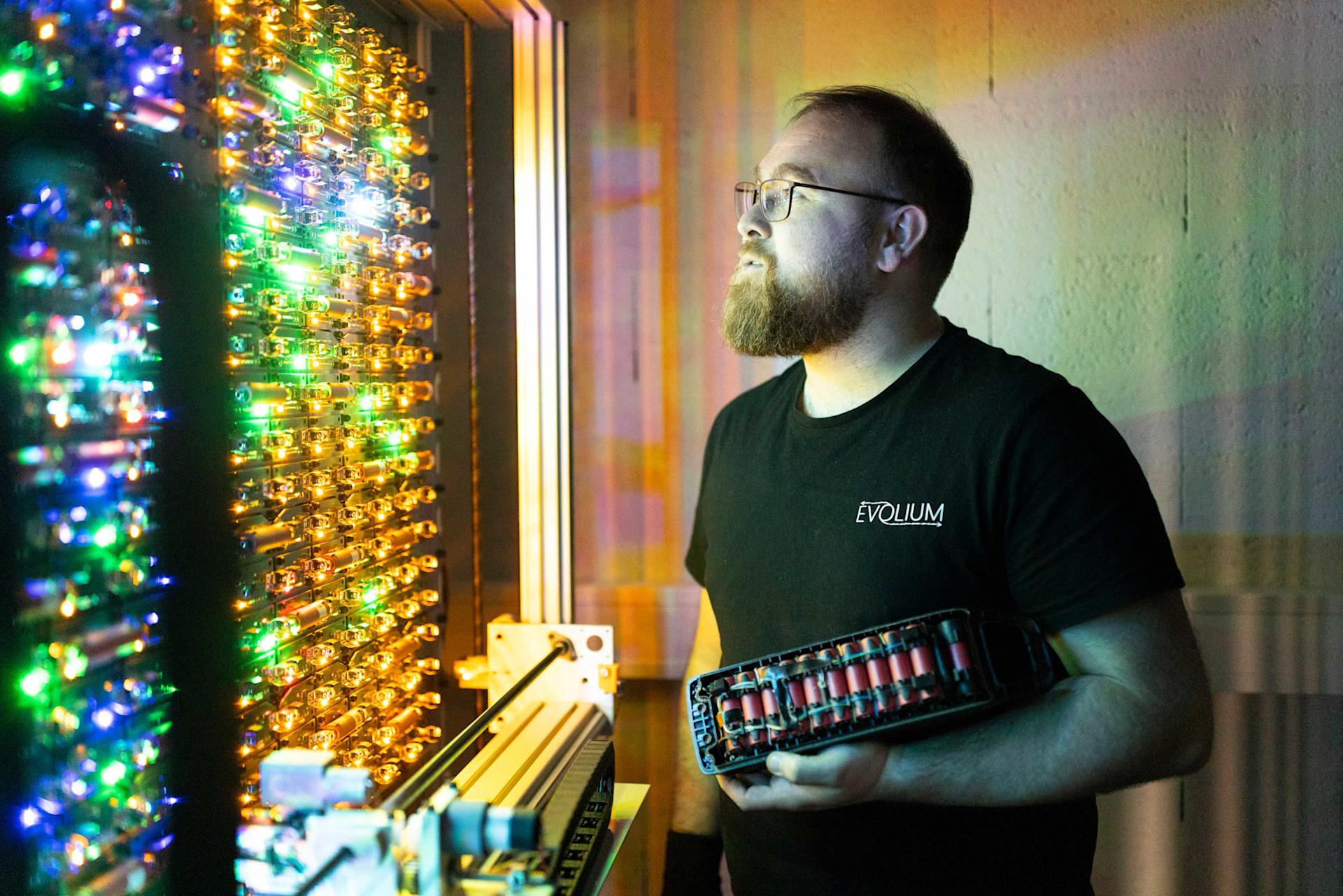
Striking a balance between work and family life
Two Migros employees talk about the balancing act of being parents, looking after their children and having a career.
navigation

Migros Pioneer Fund
Rechargeable lithium batteries from e-bikes often have to be replaced, even though most of the cells in them still work. With the help of the Migros Pioneer Fund, a start-up wants to put a halt to this waste.
In 2024, there were approximately 1.4 million e-bikes in Switzerland and at least as many lithium batteries to power them. However, these batteries have one major drawback. As soon as a small part of the cells that make up the battery no longer functions properly, the battery is no longer able to provide enough power for the bike and has to be disposed of. For Alexandre Staub, this is a technological and ecological nonsense: “It's like running a marathon with several people tied together and then having to give up because one person gets injured. If you untie the injured person, the others can continue running.” The 31-year-old from western Switzerland has therefore founded his company Evolium Technologies. The aim is to give a second life to the 70% to 80% of cells that are still fully functional when they are disposed of.
In order to select the functioning cells, Alexandre Staub and his chief engineer, 26-year-old Arnaud Halm, developed a robot that can sort each individual cell from the batteries used in e-bikes, e-scooters and household appliances. The first trials took place in Le Locle at the Haute École Arc, then at the Energypolis campus in Sion, where the start-up is now based. “It took us two years, but the investment was worth it because we have now mastered the entire technology. This is an enormous competitive advantage.” After having been sorted, the functional cells are reassembled into modules that are used to store the energy from photovoltaic systems belonging to private individuals. “This means that no new materials need to be extracted for this purpose,” explains Staub.
Since April, these modules have been packaged in cabinets the size of a small fridge with a storage capacity of 10 kWh and sold to private households in central Valais by the retailer Oiken at a price of CHF 3,500. In addition, there is a monthly subscription fee of CHF 40 for maintenance. However, a brand-new storage module would cost CHF 6,000 to 8,000. The aim of the still new start-up is to expand its offering to the whole of French-speaking Switzerland by the end of the year and to the rest of Switzerland by 2026.
Alexandre Staub is confident that his business model will endure, especially as the system is repairable. “A new rechargeable battery has a lifespan of ten years, but thanks to our subscription we can guarantee a lifetime capacity of Evolium batteries. This is because all of the cells that are tested by our robot receive a digital ID card and are monitored remotely. This allows us to notify our customers when they need to replace a module. We send them a new one and they send us the old one back. The cells are then tested again and the functional elements can be reused. We give them a third life, then a fourth and so on,” says a pleased Alexandre Staub, who sees his work as a contribution to a net-zero society and, above all, as a gesture for his future children. “If we don't act now, they will have a hard time, and I want be able to give them an answer when they ask me what I have done for the planet,” says Staub.
Discover exciting stories about all aspects of Migros, our commitment and the people behind it. We also provide practical advice for everyday life.